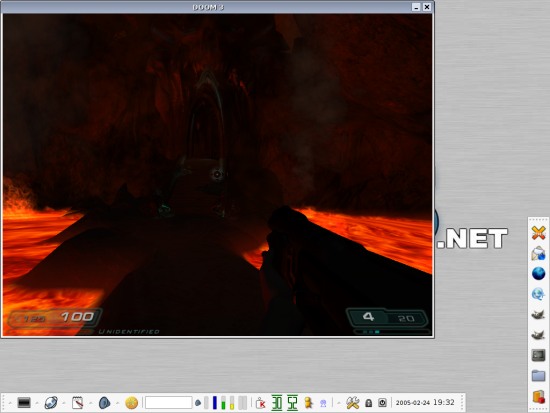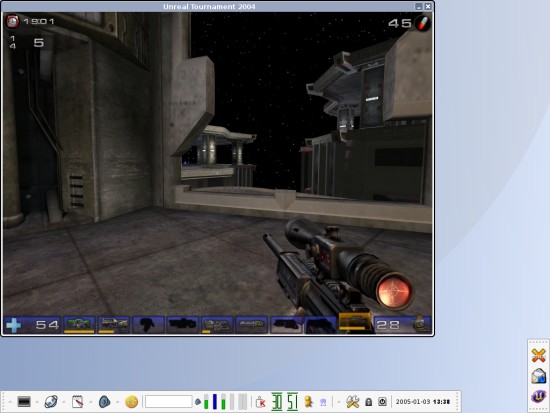Linux Games
“I did this 'cause Linux gives me a woody. It doesn't generate revenue. Please don't call or write us with bug reports. They cost us money, and I get sorta ragged on for wasting my time on UNIX ports anyway.” -- David Taylor, id Software, 1994, Linux Doom README file
id Software are really the original supporters of Linux games. Doom, and every id Software title since, has been released for Linux. Not because it's profitable, not because the market is big, but because they can - and a game engine which can be easily ported from one OS to another is a well-written engine.
This trend setting by id Software carried on, and in 1998, a Linux porting company, Loki Software, was founded, with their first port - Civilization: Call to Power for Linux released in 1999. They released a number of other ports that year, including Unreal Tournament, Descent 3, and Heretic 2. Unfortunately, Loki had a few issues - absolutely nobody was running Linux at the time, and not many people wanted to pay a second time for a Linux version of a game that they already owned a Windows version of. Only one or two titles, such as Unreal Tournament, could be applied to the Windows CD. Aiming at too small a market, coupled with management issues, caused Loki to close its doors a few years ago.
However, that's not to say Linux games died with them. Lead developer Ryan Gordon carried on with the porting business, responsible for ports such as Battlefield 1942 Dedicated Server, Serious Sam, Postal 2, Medal of Honor, America's Army, Call of Duty Dedicated Server, and of course Unreal Tournament 2003 and 2004. A busy boy indeed, and one of the main driving forces behind Linux gaming.
It's not just the 'big' games that see Linux releases though. Smaller companies can use it as a way of getting a big slice of a small pie - bedroom codeshop Introversion ported their award-winning Uplink to Linux, and their next game Darwinia will also see a Linux release. Similarly, S2 Games ported their multiplayer strategy-action game Savage to Linux, and are one of the few companies with products on the shop shelves demanding Linux as well as Windows in the system requirements.
Installing Linux games can be easy or it can be hard - Unreal Tournament 2004, for example, you simply run the installer on the CD/DVD. Some games, however, are more of a pain - Neverwinter Nights is pretty nasty to install. To solve this, some people create separate installers (using the same software as the UT installers) to ease the process - download an installer, put in your CD, run the installer.
But, going back to Doom, what do id Software do with an engine once it becomes too old to sell? Why, make it open source, of course!











